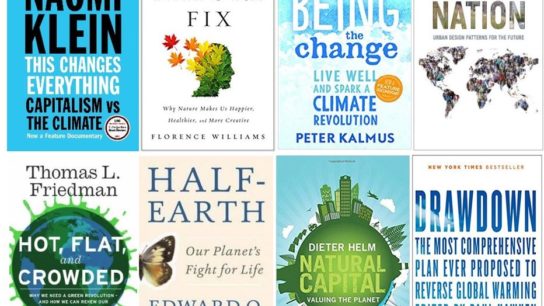Greenwashing products have led to consumers, who are interested in helping the planet, to purchase products that are less eco-friendly than they seem to be. Let’s look into some greenwashing products claiming to be good for the environment, but may be more harmful than you think.
—
What is greenwashing in business? Greenwashing is an unethical marketing tactic in which companies promote products as eco-friendly even though they do not significantly help the environment. This deceptive approach has become more common in recent years as the global economy moves towards more sustainable business practices.
Greenwashing capitalises on consumers’ environmentally conscious buying habits by tricking them into purchasing “eco-friendly” items with no real environmental benefits. Here’s what you need to know in order to steer clear of greenwashing and buy genuinely green products.
How to Spot Greenwashing Products
You must know that any product can fall victim to greenwashing, including clothing, food, home appliances, and automobiles. However, you can recognise the varying greenwashing tendencies among different products, businesses, and industries, and learn to better spot them in the future.
- Clothing
Clothing companies often greenwash their products by marketing with factual statements irrelevant to their environmental impact.
Clothing brands have been greenwashing fashion for decades with this strategy. A company might sell its clothes as “made from natural materials”, but most of the fashion industry can make the same claim. Consumers should not be celebrating these companies for making their clothes from cotton, linen, and wool; these materials should be the standard for the industry.
Additionally, sometimes a clothing company will attempt to promote a sustainable material but fail to disclose the ingredients and production processes that created it. One well-known example comes from Cargill, the world’s largest corn producer. Cargill’s officials claimed they created a new fleece material from corn sugar, but they used their own genetically modified corn to make it. Their supposed green product was nothing more than a shady cash grab.
Companies can also fail to tell consumers about the harmful effects of ingredients. The Federal Trade Commission (FTC) found bamboo clothing manufacturers guilty of this greenwashing strategy in 2010 when the manufacturers marketed their rayon products as made from “bamboo fibre”, a sustainable material in its proper form. But the FTC found one problem: rayon contains toxic carbon disulfide, which neutralises bamboo fibre’s positive effects. While the clothes technically had bamboo fibre, the other ingredients greenwashed the product and eliminated its ecological value.
Textile waste is also a significant problem in the clothing industry. While a company might make its products from sustainable ingredients, the overall waste the company produces could easily offset the products. H&M, Uniqlo, and Zara have been caught hiding their excessive waste.
The presence of one sustainable material doesn’t always mean the clothing product is eco-friendly. Looking into the rest of the ingredients and production process can help the understanding of the product in question better. If you find contradictory information, the best thing to do is to find a better solution with another brand.
- Food
All food products suffer from greenwashing, including pet food. The most common example of food greenwashing is promoting a product as “organic” or “made from real ingredients”. Don’t let these labels fool you – companies often source their food from factory farms and genetically modified ingredients.
Since we have no established definition of “real ingredients”, they can attach any misleading label they want to their food products without getting any authoritative approval prior. However, that doesn’t make them immune to punishment. Meat production company Tyson faced a hefty lawsuit after getting caught in the act.
Food giants Coca-Cola, PepsiCo, and Nestle are perhaps the most overt and shameless greenwashers, putting out vague sustainability goals with no measurables or plan of action. They made grand commitments to “cut back on waste”, but as it turns out, these three companies lead the world in plastic pollution. They hide their wastefulness behind boisterous green PR campaigns, and environmental organisations have made sure to call them out.
Sometimes a food or beverage company may legitimately have an eco-friendly item, but the production and distribution can offset it. Of course, the companies never tell us about those harmful processes. Starbucks faced backlash for using this exact strategy with its straw-free lids. While the lids have helped cut back on straw waste, they required more plastic per unit; which meant the lids ended up doing more harm than good.
- Appliances
While buying Energy Star-rated appliances is usually a safe bet, no home appliance is safe from greenwashing because companies can simply omit the harmful effects. An item might be eco-friendly in a controlled environment, but every home has different needs and energy outputs. General Electric (GE) was exposed for this tactic when the company claimed its appliances could reduce greenhouse gas emissions, but failed to account for monthly energy costs and how many devices were required to see a substantial reduction.
Another common tactic with greenwashed appliances is the use of buzzwords and images. Using buzzwords to grab consumers’ attention and establish trust is a widely used marketing tactic. Greenwashing companies casually attach words and phrases like “family-friendly” and “non-toxic” to promotional materials and packaging without evidence to support them.
Images can accomplish the same effect. A well-known example is Dawn dish soap’s marketing campaign that used animal rescue photos and videos from oil spills. While Dawn’s cleanup efforts are admirable in their own right, they don’t make its product any more eco-friendly.
These appealing words and images seek to catch the attention of empathetic consumers. Check your impulses and remember the company doesn’t care about you or your sympathy – it only wants your money.
- Automobiles
You often see deceptive trade-offs in the automobile industry when companies use the “lesser of two evils” strategy. They promote a product as more eco-friendly than a competitor’s, but the bar can be so low that the comparison loses relevance. A “fuel-efficient” vehicle might indeed have greater fuel efficiency than its competitor, but that doesn’t mean anything if both cars still cause substantial harm to the environment.
The same logic applies to gas and fuel companies. BP implemented “low-carbon energy products” and added solar panels to gas stations, but that didn’t put a dent in the company’s oil and gas expenditures. Similarly, ExxonMobil said its experimental algae biofuels could reduce travel emissions, but failed to disclose its own emissions in its 2025 sustainability goals outline.
This is the same ExxonMobil that caused a debilitating oil spill in Alaska’s Prince William Sound in 1989, which continues to impact the region.
Learn from these examples that any claim a vehicle or fuel manufacturer makes might be an attempt to hide the company’s harmful emissions or troubled past. Meet every claim with a healthy level of scepticism.
Spot Greenwashing Through Research and Intuition
An environmentally conscious consumer must always tread carefully while shopping because all items essential to our daily lives – clothing, food, appliances, and automobiles – can fall victim to greenwashing. Companies greenwashing their products often use the same strategies that you can spot through research and intuition.
Greenwashing is unethical and you should treat it as such. Don’t give companies the benefit of the doubt. If you suspect that a business has used one of the above strategies, play on the safe side and seek an alternative product.
You might also like: 10 Companies and Corporations Called Out For Greenwashing
Featured image by: China Water Risk


















